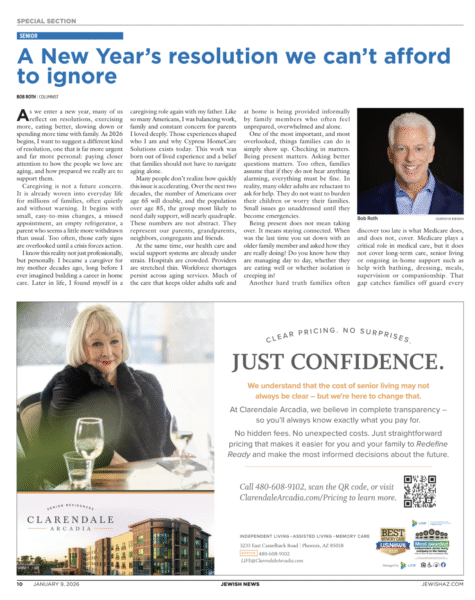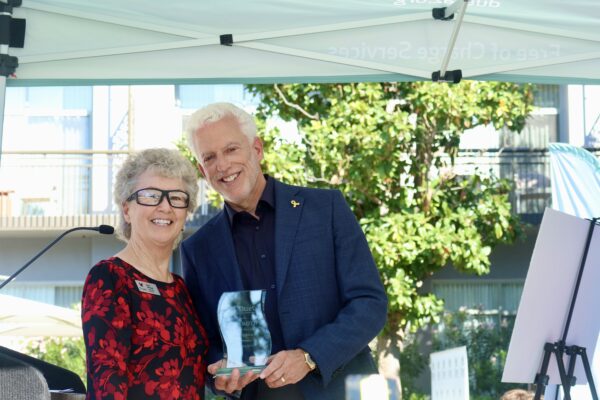Are you hoping to set yourself up for a healthy lifestyle as you move into this milestone of life? As a Scottsdale in home care provider, we have seen all the positives and negatives from the community members we serve and learned the best tips for you. Let us share our top four list to get you on the right track.
1. Plan Ahead to Age in Place
We know that more aging seniors overall wish to age in place right in the comfort of their own homes and familiar community. According to AARP, about 70% of Americans who will turn 65 this year will need some long-term care during their lifetime. Planning ahead can feel daunting as you may not know even know where to start, or how your needs may change over time. That’s okay. Starting a plan is the first step. Try to think about the kinds of help you might want in the near future. Maybe you live alone, so there is no one living in your home who is available to help you. Maybe you don’t need help right now, but you live with a spouse or family member who does. Everyone has a different situation. Think of how your lifestyle would benefit from some additional help from a homecare Scottsdale provider to come and help out a few times a week with meals or errands. Then start thinking about a budget around those needs.
Another way to begin planning is to look at any existing health illnesses you may already be dealing with like diabetes or something else chronic. Talk with your doctor about a plan to manage these existing conditions and any other potential health risks you may have such as a sore or bad knee for example. If you’re a caregiver for an older adult, learn how you can get them the support they need to stay in their own home.
2. Deprescribe
Yes, we said it. Review all medications and identify those that may be potentially inappropriate or unnecessary. According to the CDC, every year 177,000 older adults visit the emergency room due to medication problems. Research has also found that “inappropriate prescribing” of drugs is very common.
Although geriatricians especially worry about medications that affect the brain and balance, older adults are also often harmed by blood thinners, insulin, and other medications that lower blood sugar, and over-the-counter pain medications.
Each year, make a plan to review the purpose and dosing of all medications. You will need to work with a doctor or pharmacist to do this, but it’s good to do a little homework beforehand. This helps ensure that nothing important falls through the cracks, and will help you better understand the treatment of your health conditions.
3. Socialize More
Aging presents a series of role transitions: ending a career for retirement, becoming a grandparent, and perhaps even counting on help from the same children who once counted on you. Throughout all of these changes, socialization provides us with a way to learn by watching others navigate their own ways through these changes. Social interaction also allows for the sharing, processing, and comparison of perspectives and thoughts on aging and what it means to you on a personal level.
Experts have proven that socialization among older adults not only keeps the brain sharp, but can even decrease the risk of developing dementia and Alzheimer’s disease. Many aging adults are at risk of being isolated, which is one of the leading causes of depression among seniors.
Many seniors socialize by spending time in group exercise classes — which can provide a number of physical benefits, including the potential to increase lifespan. Exercise also lessens the risk of a variety of chronic health problems like osteoporosis. Community groups like senior centers offer one source of friendships. In addition, senior living communities provide multiple opportunities for spending time around other people, including exercise classes, meals, and a variety of other activities. Finally, volunteering is a great way to stay engaged socially, while serving the community and doing what you may be passionate about.
4. Address or Review Your Advance Planning for Health Care
Advance care planning is a process of planning ahead, to ensure you get the right medical care in the event of a serious medical problem or life-threatening illness. Since serious illnesses often leave people at least temporarily unable to tell doctors what they want, it’s important for everyone to have designated a durable power of attorney for healthcare. This is a person whom you’d trust to make medical decisions on your behalf.
Only 45.6% of adults over age 50 had completed an advance directive (sometimes called a “living will”) in the United States.
The state of Arizona has many resources to get started with this process. Arizona Resources for Advance Care Planning compiled a list of resources to help all Arizonans think through, discuss, and prepare advance directives—for themselves and for others.
Lastly, once this is complete, it’s essential to regularly review one’s advance care planning documents. It can be dangerous to rely on directives that were completed years ago, because they may no longer be a good fit for one’s current circumstances.
When you’re looking for homecare Scottsdale residents trust, we’ve got you covered. Call Cypress HomeCare Solutions at 602-780-0623 today to learn more.




